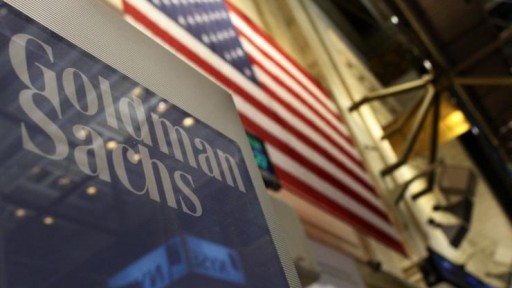- Home
- >
- Stocks Daily Forecasts
- >
- How to react when a goldman sachs backs away from its big calls so early in the year

How to react when a goldman sachs backs away from its big calls so early in the year

There are investment calls, and then there are the “total recalls.”
And Goldman Sachs has done something that approaches the latter, informing its investors that five of its biggest trades this year are not going to work.
One of the calls it closed out was an expectation that the dollar would gain against the euro and the yen, and another, Bloomberg News reported, was a bet on five-year forward Italian sovereign-bond yields versus their German rivals. (Goldman Sachs had not responded to MarketWatch’s request for a copy of the note.)
As measured by a trade-weighted basket of the dollar versus major rival , the greenback is down about 2.5% for the year, and it’s off around 5% versus the Japanese yen and 3% against the euro.
As this chart shows, five-year German yields have consistently fallen since January, meaning the price has gone higher, whereas the Italian bond yield has been a bit choppier, but more or less back to where it started the year:
Charles Himmelberg, Goldman’s head of global credit, told clients that in Europe especially, that financial spreads have been observed to be “spiking ... possibly signaling a reactivation of systemic risk concerns.” Banks have been under pressure this week, led by Deutsche Bank AG , which has spent the better part of the week publicly reassuring clients and the investment world over its finances.
Read: Why a selloff in European banks is so ominous
Last month, the bank had to abandon three more calls: a bullish bet on U.S. banks against the S&P 500 a bet on inflation expectations and a call on emerging-markets currencies, specifically that the Mexican peso and Russian ruble would climb against the African rand and the Chilean peso. (All of those currencies have weakened against the U.S. dollar.)
It’s got one big call left. That’s a bet on a group of 48 non-commodity-exporting companies against a basket of 50 emerging-market bank stocks.
The year has definitely taken some analysts by surprises. Many investment banks have had to pare back their S&P 500 calls, with the index down 8% in volatile action for the year so far, as the market has grappled with guessing the direction of oil prices and where the Federal Reserve stands on interest rates.
And: Yellen says the Fed is not sure negative interest rates are legal in U.S.
Among the more dramatic calls of 2016, the Royal Bank of Scotland advised its clients to “sell everything”. And last week Citi broached the potential for“oilmageddon” if markets couldn’t break out of a “death spiral” of weaker oil prices.
“Strategists are interesting to read for context and to understand what other large pools of money and investors are thinking. Even the strategists themselves hate the fact that they have to play the target game,” wrote Reformed Broker’s Josh Brown in a blog post on Tuesday.
He also tossed a heap of scorn on the fact that strategists are struggling so much with their S&P 500 calls, and the fact that it was down to predicting where China’s growth is headed and the direction of oil prices.
Strategists simply can’t forecast where the S&P 500 will go in any reliable manner, said Brown. “Next year it’ll be interest rates and Greece, or Chicken and Waffles or whatever comes down the pike,” he said.
The smart investor needs a process that includes diversification and a “rules-based orientation” that means you don’t have to go around chasing the guesswork of Wall Street strategists. “Anyone’s guess is as good as anyone else’s in a world of almost infinite variability,” he said.
That’s not to say investors won’t continue to take a peek at what Wall Street strategists are saying. With headlines like “Sell everything,” who can resist?
Market Watch
 Varchev Traders
Varchev Traders If you think, we can improve that section,
please comment. Your oppinion is imortant for us.








